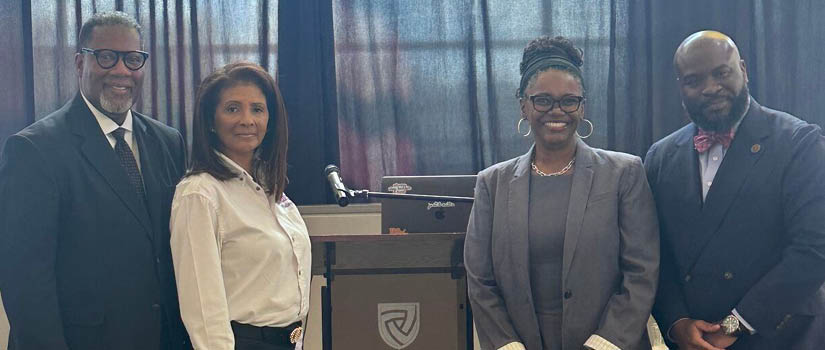Darla Moore School of Business and South Carolina HBCUs connect at regional conference
The Darla Moore School of Business and the South Carolina Historically Black Colleges and Universities (HBCUs) Business School Deans Collaborative held a quarterly meeting at Clinton College in Rock Hill, South Carolina, as part of the International Accreditation Council for Business Education annual conference.
Established in 1894 by the African Methodist Episcopal Zion Church, Clinton College has evolved from a preparatory school into a recognized degree-granting institution supporting educational aspirations of African American students.
The Moore School and the South Carolina HBCU Collaborative aims to enhance workforce development and academic quality within the region.
Ifeanyi Ugboaja, Clinton College vice president of academic services, hosted a recent meeting emphasizing the importance of collaboration among the South Carolina institutions to broaden educational opportunities.
“This partnership not only addresses industry demands but also fosters innovation and growth,” Ugboaja said.
Tracy Harrell Dunn, dean of the Tyrone Adam Burroughs School of Business & Entrepreneurship at Benedict College, also attended. As the first female and fourth dean of her business school, Dunn highlighted the significance of the collaboration in strengthening South Carolina’s higher education landscape.
“The South Carolina HBCU Business School Deans Collaborative is a vital initiative for South Carolina, as the state’s growth is closely linked to the strength of its higher education institutions,” Dunn said.
During the event, Deborah Hazzard, associate dean of Access, Opportunity and Community Engagement at the Darla Moore School of Business, discussed the Collaborative’s mission to improve the quality of business education and promote equity.
“By joining forces, our business schools can scale our positive impact while changing the lives and trajectories of students in communities across the state of South Carolina,” Hazzard said.
Looking ahead, future meetings will rotate among HBCUs to encourage shared ownership and resource sharing.
This initiative reflects a commitment to empowering students from diverse backgrounds while strengthening ties within the educational community. Overall, the Collaborative aims to create a unified network that prepares students for success in a competitive global economy and inspires a new generation of business leaders, Hazzard said.
-Christian Osborne
